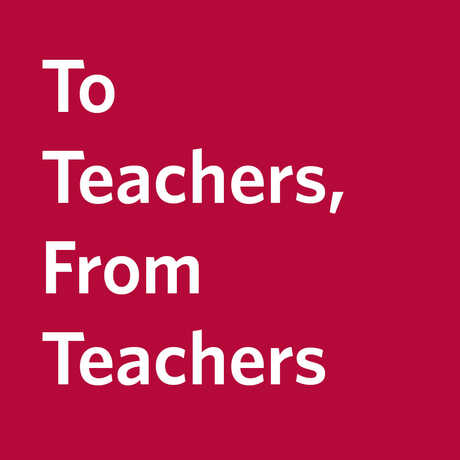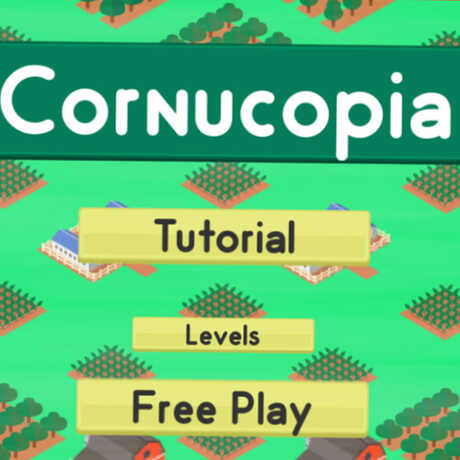Flipside Science
Check out all units in this series:
Flipside Science is a youth-powered series that tackles complex environmental topics and empowers viewers to make a difference.
Time: 30 minutes to several weeks
Grade: Designed for middle school, but applicable to high school
Focus: Food, water, and energy systems; ocean health; human impacts on Earth's systems (ESS3.C); engineering solutions (ETS1.A-C)
Flipside Science features media-rich units perfect for educators looking to engage their students in design thinking activities around environmental issues. This engaging and upbeat collection of videos, hosted by Academy youth, and associated lessons explores how local communities are addressing environmental problems with solutions ranging from vertical farming to greywater recycling. Check out the units on energy, food, water, and ocean health below:
The ocean affects everyone. It provides important resources and recreational enjoyment to people around the world and is home to some of the most diverse ecosystems on Earth: coral reefs. But the ocean's resources and biodiversity are under threat from human impacts. What are some local actions we can take to protect our global ocean?
Energy is an important part of our everyday lives. We use energy to cook, get around, and send emails. In this unit, we'll explore the issues associated with fossil fuels and how people are coming up with innovative sustainable energy alternatives for a brighter future.
To feed our growing world, we need innovative solutions. In this unit, we'll explore environmental issues related to the food we grow and eat. We'll review key issues like food waste, urban farming, and diet, and learn how simple choices we make can impact our planet.
Humans depend on water, and our need for this precious resource is growing alongside our population. How will we meet the needs of the future without harming the environment? In this unit, we'll explore key water issues, the water cycle, and some of the technology and techniques used to conserve water.

"My teaching colleague and I have been discussing possibilities for activities on getting our students involved in problem-solving and critical thinking about the environment. This sounds like such a perfect fit! We wanted real-world situations that they could use, and create possible applications in their home environment." -Middle School Teacher, Incline City, Nevada
"These resources would be a great addition to the ecology lessons we teach. I know this would be current and my co-teacher and I would be able to hook our students!" -9th Grade Teacher, Lockport, Illionois
"I love that the images in the video reflect the diversity of students and teachers I work with. I think this will help urban students see they are part of the equation of learning about and caring for our world." -High School Informer Educator, Missouri Department of Conservation
"I want to help my students critically think and problem solve about the problems they may encounter in their lifetime. This gives them some practice to collaborate with their peers and look for solutions." -7th Grade Teacher, Lincoln Nebraska
"As a science teacher with a diverse group of learners, I am always on the lookout for new ways to present learning interactions, to maximize concept understanding. I think that this is a form of education that will be beneficial to my student's needs and interests. My school consists of students with learning disabilities, some with mental health issues... Thank you for adding another tool to our toolbox." -7th-12th Grade Teacher, Califon, New Jersey

While playing Cornucopia—a fast-paced farm simulator—you manage a plot of land, planting crops based on a number of factors, in order to meet a variety of food orders. Keep an eye on your water meter and your crop yields, and earn technology upgrades to make your farm as successful as possible before the season ends.
This series is meant to create a transformational learning experience for students and their teachers by incorporating best practices for teaching environmental science and applying design thinking in the classroom. Flipside Science...
Inspires action with a positive, solution-oriented message. Flipside Science empowers students to make choices that positively impact their communities while teaching them about important environmental science concepts with engaging videos and design thinking challenges.
Teaches critical thinking. Students learn how to define problems, evaluate evidence, and decide what they think about environmental issues. They are empowered and inspired to engineer their own solutions to complex problems.
Fosters collaboration. Flipside Science gives students the opportunity to learn from their peers and work with others to solve problems collaboratively.
Acknowledges the complexity of environmental issues. This series connects humans to their environment and helps students understand that there are no easy nor singular solutions—environmental problems are complex.
Highlights youth voice. Flipside Science is hosted by high school students from the Academy’s own Youth Programs. Middle schoolers can relate to teen narrators as near peers, versus adult narrators.
Is easy to implement in the classroom. Free and available online, the series currently features three fully-developed teaching units. Student worksheets that accompany each lesson in the food and water units are available in English, Spanish, and both Simplified and Traditional Chinese. The short modular videos also allow flexibility in the use of distinct Flipside Science materials.
Disciplinary Core Idea: ESS3.C: Human Impacts on Earth Systems
Science Practices: Analyzing and Interpreting Data; Obtaining, Evaluating, and Communicating Information; Constructing Explanations; Mathematical and Computational Thinking
Engineering Design:
Flipside Science would not have been possible without generous help from the following:
Academy Youth Hosts:
Darrah
Ice
Madeleine
Spurgeon
Christopher
Aliya
Nataly
Lucas
Toby
Anna
Alejandro
Fresh Run Farm
Green Skies Vertical Farm
Growing Up Farms
Barboni Ranch
Pisces Foundation
Recology, San Francisco
GRID Alternatives Bay Area
Calpine at The Geysers
SFPUC
SFMTA
Pacific Gas & Electric
Santa Clara Valley Water District
Straus Family Farm
Acta Non Verba
Design for Change
Renewable & Appropriate Energy Laboratory
Surfrider Foundation
Reef Check Foundation
Greater Farallones National Marine Sanctuary
OpenBiome
Don Bugito
San Franpsycho
National Weather Service Bay Area
KPIX CBS
NOAA Office for Coastal Management
Check out all units in this series: